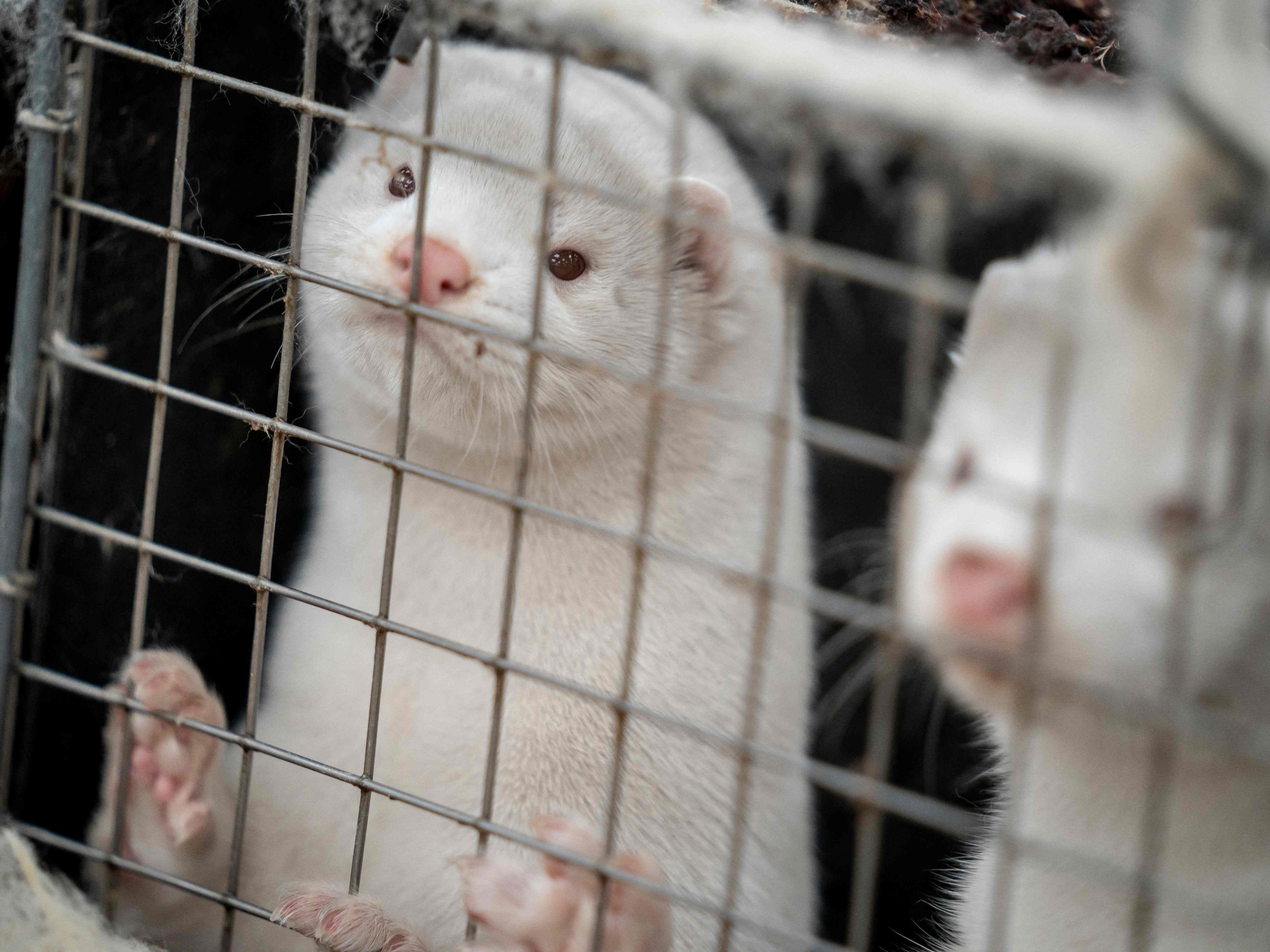The Independent's journalism is supported by our readers. When you purchase through links on our site, we may earn commission.
No 10 asked for our views on banning fur – then completely ignored them
Even the former chief of the British Fur Trade Association turned his back on the industry, so why not the government?


When Claire Bass visited a farm in Finland where foxes and mink were bred for their fur, she came face to face with what she could only describe as “hell on earth”.
The long-time campaigner knew beforehand what conditions would be like, but she was still shaken to her core. The animals were literally being driven insane in the tiny cages where they continually paced and clawed at the bars. Many were suffering painful, infected wounds that made Ms Bass recoil. They were “ghosts, broken souls, living in barren cages”, she said.
Today, Tuesday, marks exactly a year since the UK government took the first steps towards cutting ties with the fur trade by launching a public call for evidence on banning imports and sales of real animal fur.
Nearly 30,000 people responded to that call. Surveys have consistently shown an overwhelming majority (around three-quarters) of the public support ending the UK’s links to the fur trade, so it’s safe to assume most of those 30,000 supported the idea.
However, in the past 12 months, the government has not only failed to release the consultation results, but has even gone further. It has ditched a bill that would have outlawed any fur trade in Britain and banned the odious foie gras and adverts for brutal foreign elephant theme parks.
It’s been widely reported that right-wingers including Jacob Rees-Mogg vetoed the legislation, using arguments that should be filed alongside those for burning witches and sending children up chimneys.
Although a ban on imports and sales of real fur have widespread public backing, many shoppers buy fur unknowingly, believing it to be fake. The real thing is cheap because it costs so little to rear animals en masse in grisly conditions, susceptible to disease and with no veterinary care.
While Downing Street sat on the 30,000 responses, officials knew that coronavirus had been spreading through fur farms abroad, in some cases infecting workers. The government’s silence comes not so very long after No 10 staff were revelling at parties in breach of lockdown rules. It all smacks of an arrogant fondness for keeping secret things the public should know.
Some campaigners, including Ms Bass, executive director of Humane Society International/UK, have dedicated years of their lives to working for a ban, and, with the Animals Abroad Bill, had been led to believe that at long last, all the meetings, letters, petitions and celebrity videos were about to bring results. It even flies in the face of the government’s own action plan for animal welfare, announced to great fanfare a year ago.
To balk at “banning” things may superficially be understandable but circumscribing the limits of what is and is not acceptable on humane grounds is part of how civilised societies develop. The cruelty of fur farms is considered so extreme that they were banned in the UK in 2003, so to keep profiting from them undermines our own principles.
When even a former chief executive of the British Fur Trade Association publicly turns his back on the industry, you know that defending the indefensible is a lost cause. Mike Moser has vociferously spoken out in favour of a fur-free Britain.
To keep up to speed with all the latest opinions and comment, sign up to our free weekly Voices Dispatches newsletter by clicking here
Now, the leaders of five large animal-welfare organisations including the RSPCA have written to environment secretary George Eustice, calling on him to release the consultation findings, pointing out: “In addition to the clear evidence that fur farming causes unacceptable harm and risk to both human and animal health, the farming of carnivorous animals for a luxury product is clearly not a sustainable proposition in terms of its damaging and unnecessary carbon and climate footprint.”
They add that catching wild animals such as coyotes, raccoons and beavers using traps that are illegal in the UK is equally unacceptable. Quite. The government knows all this, but to certain cabinet members, it seems the hideous suffering of millions of creatures is just another issue that can easily be swept under the carpet.
It’s ironic that a ban on all three areas – fur, foie gras and elephant brutality adverts – would actually have been an easy win in the popular policies race.
The government insists nothing has changed in its ambitions, but perhaps it feels embarrassed about its dithering. So it should be. On the anniversary of the call for evidence, it seems only appropriate to call for ministers to release to the public the very views that should be shaping this long-overdue legislation.
Join our commenting forum
Join thought-provoking conversations, follow other Independent readers and see their replies
Comments
Bookmark popover
Removed from bookmarks